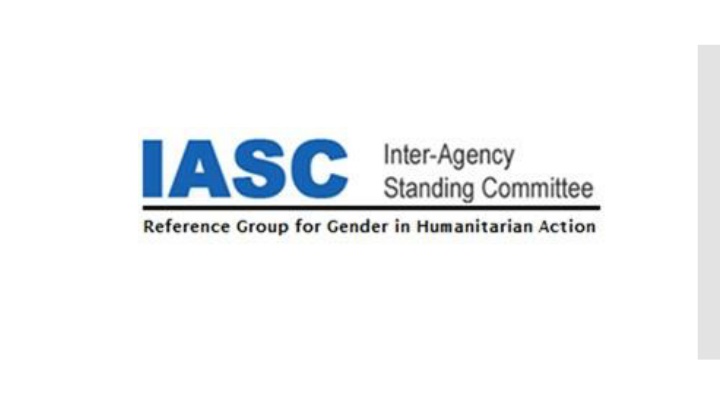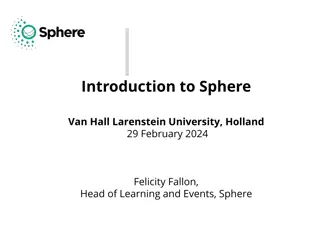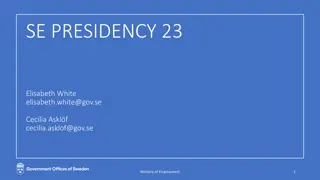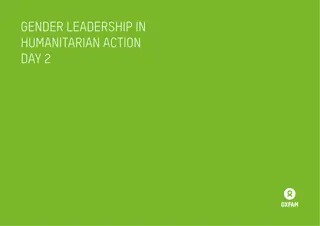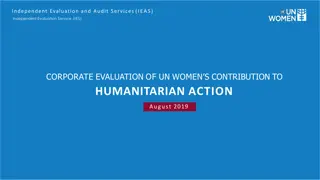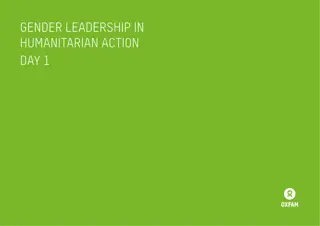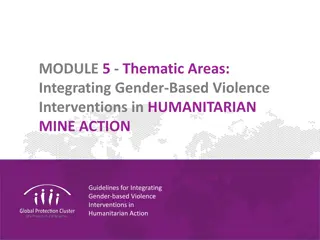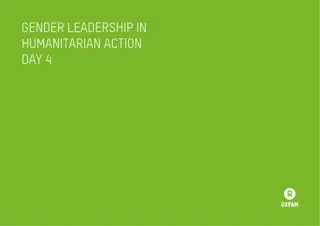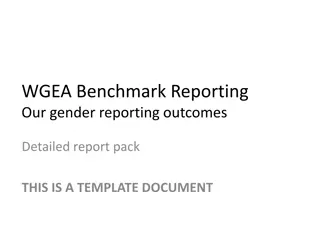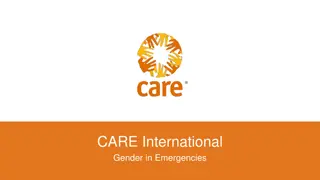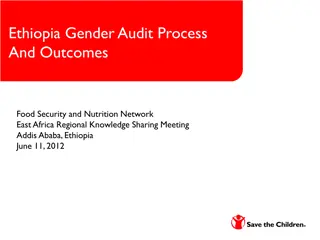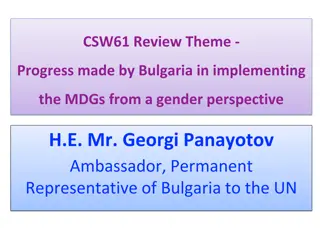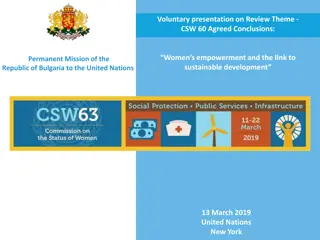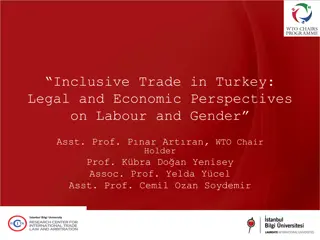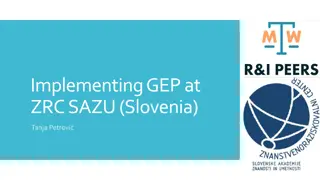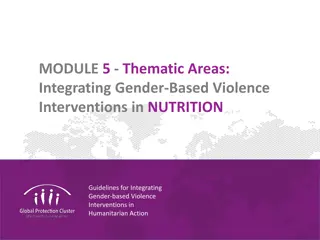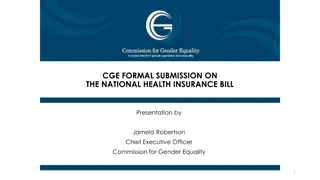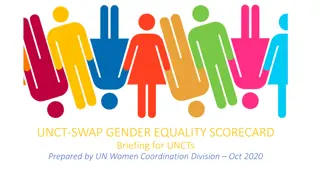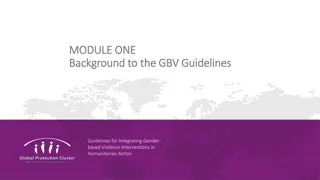Enhancing Gender Equality in Humanitarian Action
The Gender Reference Group (GRG) conducted a review in 2015 of the IASC's Gender Policy Statement, highlighting inconsistent implementation and lack of gender capacity. As the GRG Chair, UN Women will lead the revision of the 2008 Gender Policy to establish an accountability framework. This update aims to complement WHS commitments by defining roles, ensuring gender analysis in the HPC process, including local women's groups, achieving gender parity in staffing, and creating an Accountability Framework through expert group meetings and stakeholder consultations.
Download Presentation

Please find below an Image/Link to download the presentation.
The content on the website is provided AS IS for your information and personal use only. It may not be sold, licensed, or shared on other websites without obtaining consent from the author.If you encounter any issues during the download, it is possible that the publisher has removed the file from their server.
You are allowed to download the files provided on this website for personal or commercial use, subject to the condition that they are used lawfully. All files are the property of their respective owners.
The content on the website is provided AS IS for your information and personal use only. It may not be sold, licensed, or shared on other websites without obtaining consent from the author.
E N D
Presentation Transcript
Gender Reference Group
WHS Outcomes 20% of all commitments made to the WHS targeted actions for GEWE or mainstreaming gender Consensus on the need to draw on the skills, expertise, and abilities of local women and women s groups. Central to empowering women and positioning them as central actors, leaders, and agents of change in humanitarian action.
The GRG conducted in 2015 a review of the IASCs 2008 Gender Policy Statement. It found that: IASC Gender Policy Update The policy was inconsistently implemented across the IASC A lack of gender in humanitarian action capacity with the IASC and HCTs, and the absence of an accountability mechanism Important institutional changes such as the TA failed to adequately reflect the commitments of the As the GRG Chair, UN Women will also lead on the revision of IASC s 2008 Gender Policy and create an accountability framework.
An update of the policy will assist the humanitarian coordination system to compliment the core WHS commitments by: Update and establish steps and defined roles and responsibilities to ensure the use of SADD and context-specific gender analysis, throughout the HPC process. Ensuring inclusion of local and national women s groups and gender expertise in clusters Ensuring that humanitarian country teams gender focal points are filled and are at sufficiently senior levels Establishing targets to ensure that humanitarian country teams achieve gender parity in staffing at all levels Creation of an Accountability Framework Key Items to Consider
Conduct an Expert Group Meeting. Establish a Steering Committee made up of key stakeholders. Process Conduct a series of consultations with identified key stakeholders, including: o IASC Working Group and Secretariat o IASC Member Agency representatives; o Global Cluster Coordinators; Identify comparable Accountability Frameworks to identify best practice and working models for adaptation. Present outline of policy revision content and potential accountability frameworks to IASC Working Group for comment and endorsement.
